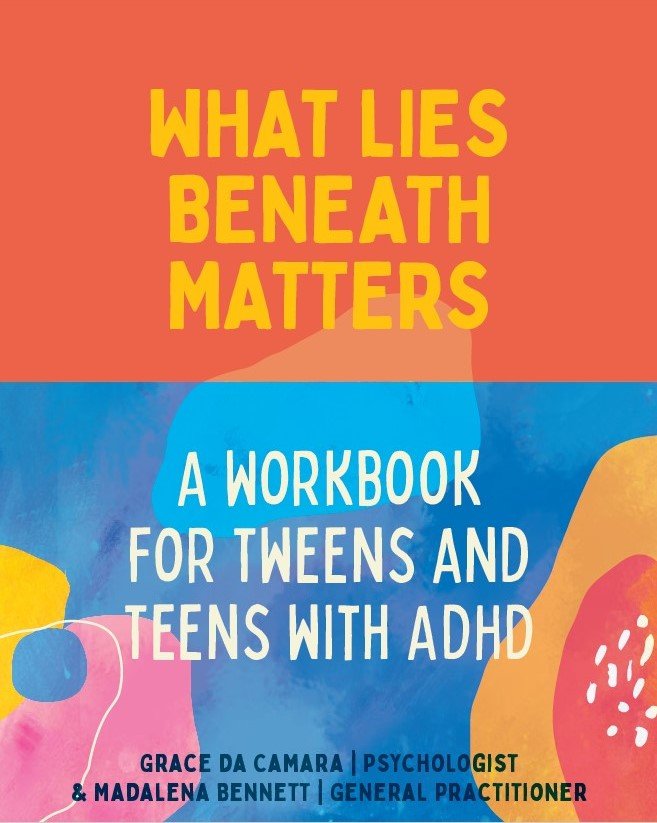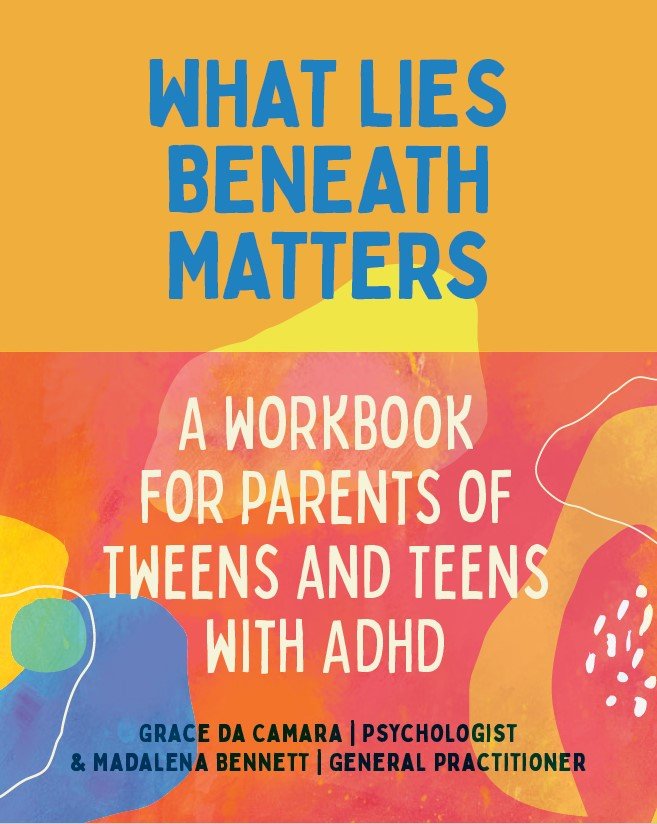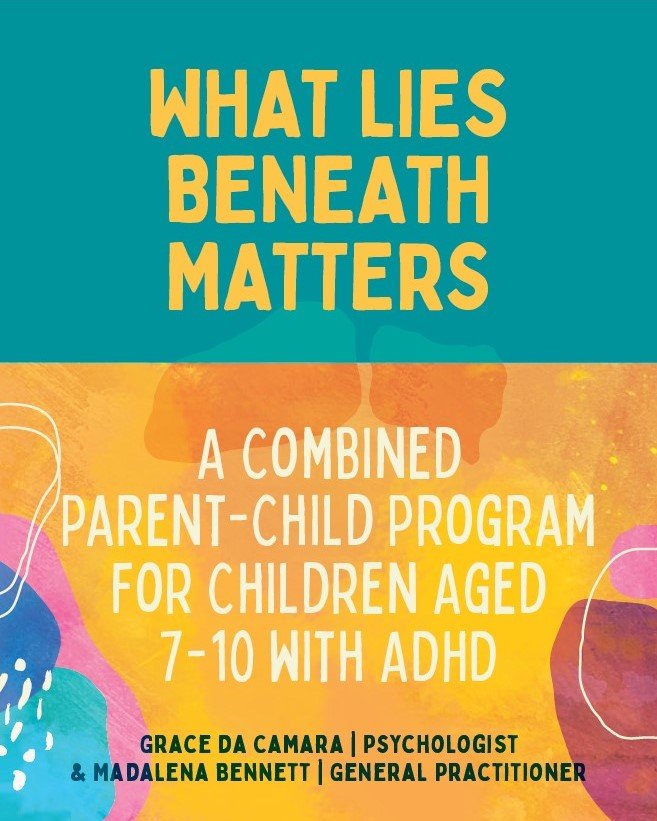What Lies Beneath Matters
A Workbook for Tweens and Teens with ADHD

If you have a tween or teen with ADHD, you know how challenging it can be to manage their symptoms and support them in their day-to-day life. That’s where What Lies Beneath Matters comes in. This proven workbook, developed by psychologist Grace da Camara and Dr Madalena Bennett, presents a cognitive behavioural approach to managing ADHD in tweens and teens. Whether you’re participating in the OnTrac pro-gram or using it as a standalone resource, this book provides a wealth of knowledge, education, and strategies to help your child succeed.
With three modules covering psychoeducation, adaptive thinking, and practical coping skills, What Lies Beneath Matters is designed to help your tween or teen identify their strengths, manage their weaknesses, and navigate the world of ADHD with confidence. And if you’re a parent, you’ll appreciate the simple, effective strategies that make it easy to support your tween or teen at home.
This book has received high praise from professionals and parents alike, and it’s a valuable resource for anyone living in rural Australia, where mental health resources can be limited. With engaging activities, relatable scenarios, and a positive, empowering approach, What Lies Beneath Matters is a must-read for anyone looking to help their child thrive with ADHD.

Grace da Camara, registered psychologist, employs a range of different therapeutic approaches including Cognitive Behaviour Therapy, Rational Emotive Behaviour Therapy, Interpersonal Psychotherapy and Acceptance Commitment Therapy but mostly adopts an eclectic approach on the basis that each client as unique and has their own particular presentation. Her overriding focus is to help the client develop a better understanding of their challenges and grow in a personally meaningful way.
Dr Madalena Bennett, general practioner, recognises and acknowledges the need for education on ADHD for mental health professionals, including GPs. She is a member of the RACGP specific-interest ADHD, ASD, and neurodiversity group and has engaged in upskilling for fellow GP colleagues in this area. Both Grace and Madalena support and endorse the need for greater knowledge and education about the condition, with a focus on interventions targeted to individuals and families living with ADHD.


